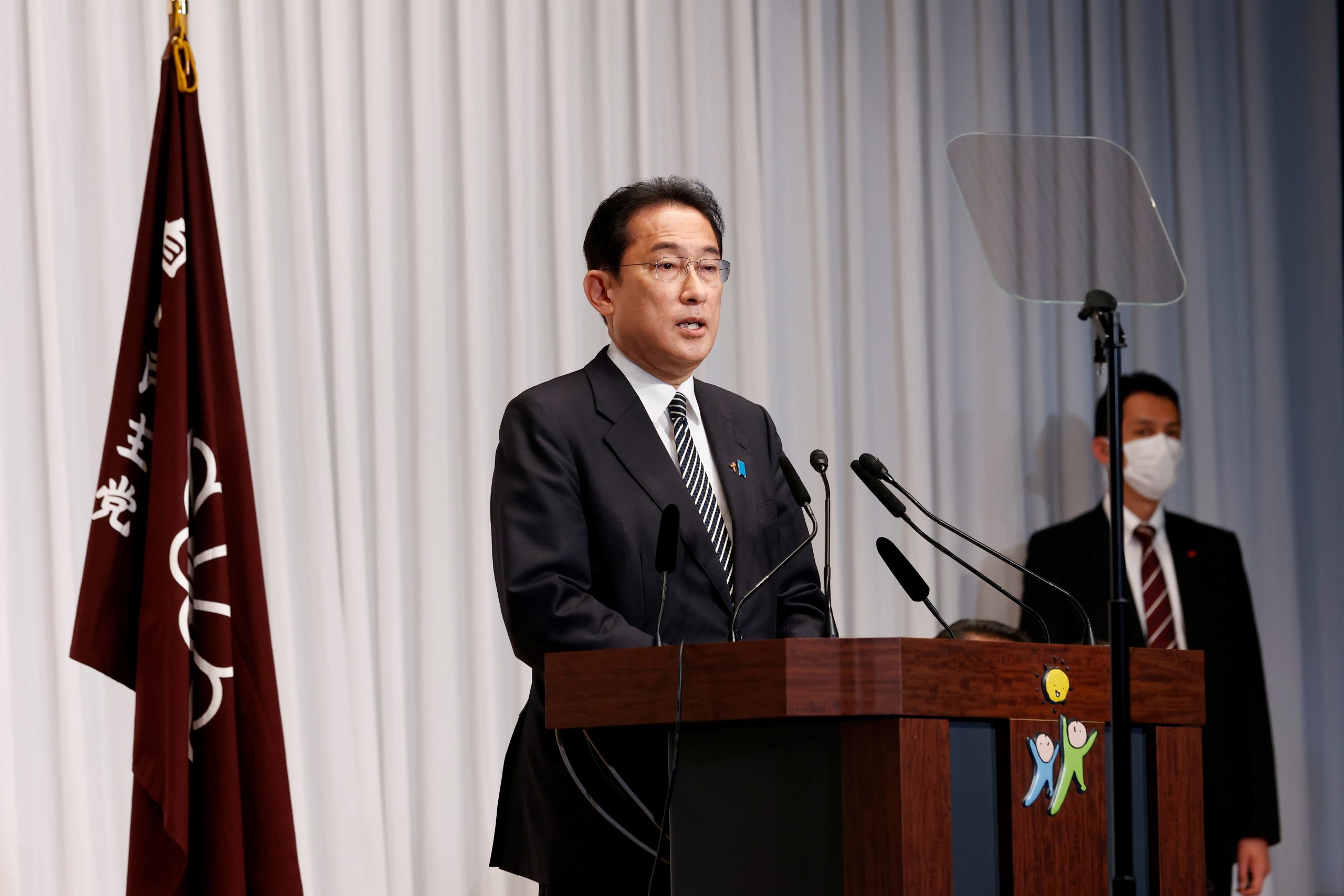Japanese Prime Minister Fumio Kishida, invigorated by a surprisingly strong election victory, signalled on Monday he would pursue defence policies aimed at deterring China, address climate change and accelerate recovery from the pandemic.
Kishida’s conservative Liberal Democratic Party (LDP) defied predictions and held onto its single party majority in a Sunday election, solidifying his position as head of the fractious party and giving him a freer hand in parliament, with recovery from the coronavirus pandemic – including an extra budget – taking priority.
Some had feared that Kishida, only in power for a month, could become another one of Japan’s short-term prime ministers, but the election results – which set stocks surging in relief – will allow him to put his own stamp on policies ahead of an upper house election next summer.
The LDP’s solid victory in Japan’s parliamentary election also eased bond market fears of massive bond issuance because it will likely take pressure off Kishida https://www.reuters.com/world/asia-pacific/japan-ruling-partys-election-win-takes-pressure-off-pm-bigger-spending-2021-11-01 to inflate the size of a pandemic-relief stimulus package.
“We will speedily implement policies to respond to the voices of the people we have received nationwide that strongly desire political stability and policy implementation,” the prime minister said at a news conference on Monday.
Key among those will be recovery from the pandemic, with Kishida pledging to work for an extra budget by the end of the year, look into restarting a travel subsidy programme to revive domestic tourism and compile a “large-scale” stimulus package around mid-November.
But he also placed emphasis on defence in a nod to the more hawkish views of backers in the LDP who supported him in his run for leader, the pursuit of which could become trickier given the electoral gains made by the dovish junior coalition partner Komeito.
The LDP included the unprecedented pledge to double defence spending to 2% of GDP in its party platform, a nod to its haste to acquire weapons to deter China’s military in the disputed East China Sea.
“When we think about protecting people’s lives and livelihood, a budget should not come first,” Kishida said.
“We need to think about what is really needed for that end. I’d like to proceed with this debate carefully so that I can gain Komeito’s understanding.”
DIPLOMACY, CLEAN ENERGY
Kishida added that Japan needed to consider the capability to strike enemy bases as an option to counter growing defence technology in other nations.
“What’s important is making checks constantly if a system is in place to protect people’s lives and livelihood amid a changing international situation and advancing technologies,” he said.
The prime minister, who spoke of “personal diplomacy” during the campaign, wasted no time kicking that off by announcing he would leave for Glasgow and the COP26 climate summit on Tuesday for his face-to-face debut at an international conference.
Saying his stimulus package would include investment on clean energy and funding aid to Asia, he also said he hoped Japan would take a leadership role on zero emissions in Asia.
Japan has set a target of 2050 for becoming carbon-neutral, and Kishida believes – in the face of considerable public opposition – that nuclear energy should remain an option.
While initial exit polls on Sunday suggested the LDP would have to rely on its junior coalition partner, Komeito, to keep a majority, the conservative party – in power for all but a few years since its founding in 1955 – instead won a solid majority of 261 seats on its own.
The party did take some notable hits, including the loss by LDP secretary-general Akira Amari, in his single-seat district. Though media reports said Amari would resign, Kishida said he would decide his future after the two had “thorough discussions”.
Kyodo news agency reported that Kishida was considering foreign minister Toshimitsu Motegi as Amari’s replacement.
Voters took the results in their stride.
“This is pretty much as I expected, though I thought there might be a bit more of an impact from their handling of the coronavirus pandemic,” said Satoshi Tsujimoto, 53 and an office worker. He did not vote for the LDP.
(Additional reporting by Sakura Murakami, Rikako Maruyama and Kohei Miyazaki; writing by Elaine Lies; editing by Lincoln Feast and Raju Gopalakrishnan)
